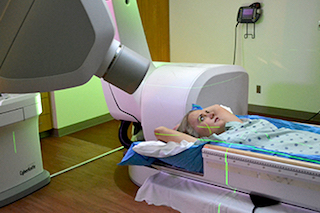
In the busy metropolis of Hong Kong, among its skyscrapers and colorful streets, there is a growing concern: autism spectrum disorder. With an increasing number of children diagnosed with ASD each year, the need for appropriate therapy and support services has never been greater. Fortunately, the city has recognized the value of community care in delivering holistic and individualized interventions for people with autism, paving the path for significant breakthroughs in their lives.
Understanding Autism Spectrum Disorder.
Autism spectrum disorder is a complicated neurodevelopmental syndrome marked by difficulties with social interaction, communication, and repetitive activities. It affects people differently, with mild to severe symptoms. While the specific origin of autism remains unknown, early detection and intervention are critical for improving outcomes and quality of life for people with ASD.
Challenges in Traditional Approaches to Therapy
Traditionally, effective therapy for autism in Hong Kong has been mostly delivered in clinical settings like hospitals and specialist treatment centers. While these services provide significant assistance, they frequently lack the tailored and community-based approach required to meet the various needs of people with autism. Furthermore, long wait periods and inadequate resources have created substantial barriers to receiving appropriate interventions, leaving many families feeling overwhelmed and alone.
The Growth of Community Care
Recognizing the limits of traditional techniques, Hong Kong has seen a shift toward community-based care for people with autism. Community care focuses on collaboration among families, educators, healthcare experts, and social service providers to provide a supportive network that promotes the holistic development of people with autism.
One famous example of community care in action is the installation of autism resource centers throughout the city. These centers act as information, support, and intervention hubs, providing a variety of programs customized to the specific needs of people with autism and their families. These facilities serve a critical role in enabling people with autism to attain their full potential, from early intervention programs to social skills training and vocational help.
In addition to resource centers, community care extends to schools, where educators are increasingly adopting inclusive strategies to accommodate kids with autism in mainstream settings. Schools that develop an environment of acceptance and understanding not only help kids with autism achieve academic achievement, but they also encourage social inclusion and peer relationships, creating the groundwork for a more inclusive society.
Impact of Community Care
The value of community care for people with autism and their families cannot be emphasized. Community care has changed the landscape of autism therapy in Hong Kong by making services more accessible, individualized, and culturally sensitive, giving people in need hope and support. Families no longer feel alone on their journey since they are connected to a network of experts and peers who understand and value their unique experiences.
Furthermore, community care encourages advocacy and awareness, which sparks discussions regarding autism acceptance and inclusion in society. Hong Kong is cultivating an understanding and acceptance culture through public education campaigns, community activities, and grassroots efforts, in which people with autism are appreciated for their skills and contributions.
Looking Forward: Challenges and Opportunities
While great progress has been made, there are still barriers to ensuring equitable access to community care services for all people with autism in Hong Kong. Financial constraints, limited resources, and cultural stigmas continue to stymie attempts to expand and strengthen support services. To address these difficulties, a multifaceted approach will be required, involving collaboration across government agencies, non-profit organizations, and the general public.
Nonetheless, the future is bright, as Hong Kong continues to engage in projects that prioritize the well-being and inclusion of people with autism. By leveraging the power of community care, the city is setting the path for a brighter, more inclusive future in which people with autism may thrive and make meaningful contributions to society.
Finally,
Community care is critical to offering effective autism therapy in Hong Kong. Community-based approaches are improving the lives of people with autism and their families by encouraging collaboration, empowerment, and inclusion, paving the path for a more equitable and compassionate society. As we look ahead, let us continue to advocate for the rights and dignity of people with autism, ensuring that they have the resources and opportunities they need to live productive and meaningful lives.
You Should Also Read:
Here at SmallBusinessTheBest, we provide you with free resources and all the help you need to successfully start and run your business. The sky is the limit and we’re here to help you achieve it!



